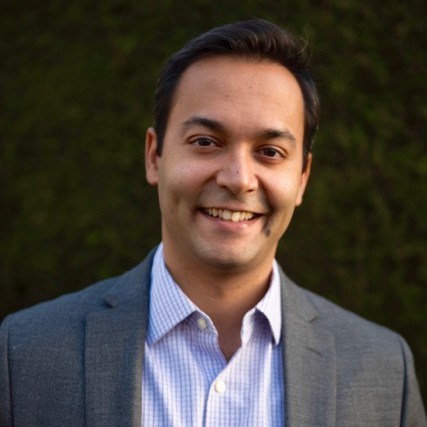Students: Your textbooks could be free!

Students: Your textbooks could be free! Join Dr. Rajiv Jhangiani on October 30, from 1:30-2:30pm in RIC 119 for his presentation on “Open educational resources: Supporting access, equity, and student success.” Find out about open textbooks, a free or low cost alternative to expensive educational resources.
Faculty and staff: Are you interested in learning more about open educational resources? Join Dr. Jhangiani from 10-11am in the Regina/Wascana rooms (LY 107.32/107.33) on the main floor the Library for his faculty/staff presentation, entitled “Serving social justice and pedagogical innovation with open educational practices.”
Dr. Rajiv Jhangiani is the University Teaching Fellow in Open Studies and a faculty member in the Department of Psychology at Kwantlen Polytechnic University. He also currently serves as a Senior Open Education Research & Advocacy Fellow with BCcampus, an Associate Editor of Psychology Learning and Teaching, and an Ambassador for the Center for Open Science. Over the past several years, Dr. Jhangiani has participated in the development of open textbooks and open educational resources for BC Campus. You can learn more about Dr. Jhangiani and his work at http://thatpsychprof.com/ .
Dr. Jhangiani’s visit to the University of Regina is organized and sponsored by URSU and the University Library, with support from the Associate Vice-President (Academic & Research).
Full descriptions of each presentation are provided below.
Questions should be directed to Cara Bradley at cara.bradley@uregina.ca or 306-585-4837.
******
“Serving social justice and pedagogical innovation with open educational practices”
Monday, October 30, 10-11am, Regina/Wascana Rooms (LY 107.32/33) on the main floor of the Library
Higher education promises to be a vehicle for economic and social mobility; however, this promise increasingly goes begging as our institutions are structured to reinforce existing inequalities, with engagement, persistence, and achievement still closely tied to affordability. The oft-heard institutional claim to be student-centered is similarly hypocritical, as it is usually faculty, accreditation requirements, and budgetary constraints that dictate both the structure and content of the learning experience. It is against the backdrop of such paradoxes that open education practices have emerged as a transformational force in higher education.
Open educational practices (OEP) encompass the creation, adaptation, and adoption of open educational resources, open course development, and even the design of renewable assignments where students are empowered as co-creators of knowledge. OEP represents a truly learner-centered approach to education that radically enhances both agency and access. This presentation will draw on a diverse set of examples to make a case for why the shift away from traditional (closed) practices is not only desirable but also inevitable, and how OEP support the modern university’s mission by serving both social justice and pedagogical innovation.
“Open educational resources: Supporting access, equity, and student success”
Monday, October 30, from 1:30-2:30pm in RIC 119
With the cost of commercial textbooks rising by more than 3 times the rate of inflation, a majority of students do not purchase some of their required course materials, while others choose or even drop courses based on textbook costs. Unnecessary new editions and access codes that are available only with new textbooks are all elements of a business model that continues to prey on economically fragile students. Happily, an alternative now exists in the form of open textbooks, a type of open educational resource (OER) that is rapidly growing in popularity. Faculty can assign high-quality, peer-reviewed textbooks to their students free of cost, while also gaining the freedom to adapt and customize the textbook for their course. This presentation will address the problem of unaffordable textbooks, introduce and explain the advantages of open textbooks, and help equip you to be an effective student advocate for OER.

